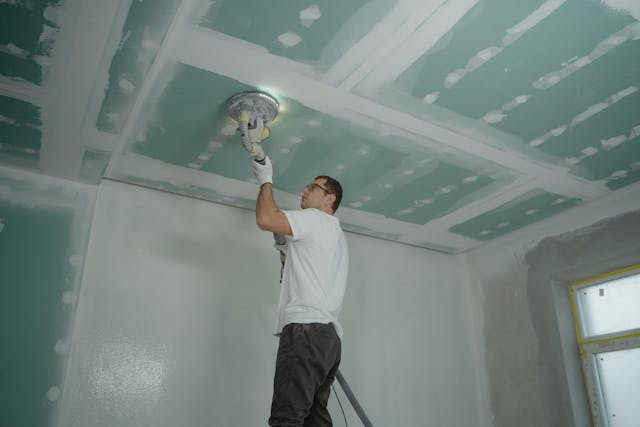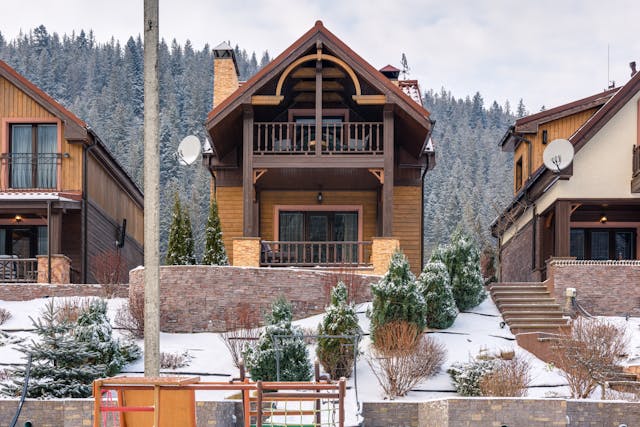
Should You Ask Your General Contractor For Proof of Insurance?
If you’ve been planning an addition, foundation repair, or other home renovation project, you are most likely anxious to get started. The last thing you want is to prolong the hiring process. Furthermore, many homeowners simply want to hand the contract to the lowest bidder.
But you could be exposing yourself to a tremendous amount of risk by not vetting your general contractor properly. If a contractor is injured on your property, or if they cause significant property damage, you could be on the hook for any medical bills or additional repair work that needs to be done.
This blog will discuss the importance of verifying insurance, the risks involved, and local laws regarding workers’ comp insurance. Here at Arise Constructions & Remodels, we are fully licensed and insured - if you need any remodeling done in Denver or the surrounding areas, please get in touch for a complimentary consultation.
Should You Ask Your Contractor For Proof of Insurance?
Absolutely. Before hiring a contractor for your home improvement or construction project, verifying that they carry valid insurance is one of the most important steps you can take. Proof of insurance protects you from potential financial and legal troubles.
When a contractor provides proof of insurance, it shows they take their business seriously and understand their responsibilities. Their coverage should include general liability insurance and, if they have employees, workers' compensation insurance. In fact, workers’ comp insurance can even cover injuries to sub-contractors who are injured while under the employ of the general contractor.
How to Ask a Contractor For Insurance Before You Hire Them
It’s not awkward at all - reputable contractors expect to provide this information to new customers. All you need to do is say something like, “Great - everything sounds good. As soon as we can take a look at your proof of insurance we are ready to move forward.”
If a contractor dodges the request, it’s a red flag. Contractors with up-to-date policies should be happy to send you a certificate of insurance that outlines the coverage limits, policy dates, and the insurance provider’s contact information. This isn’t unique to construction either - commercial landlords require proof of insurance from their tenants, for instance.
Please take the time to review the certificate and make sure the policy is current. If you feel led to do so, you can even call the insurance provider listed on the certificate to confirm its validity.
Remember, contractors who run a tight ship will appreciate your diligence. They will not be offended.
Risks of a Homeowner Hiring an Uninsured Contractor
It’s usually cheaper to hire an uninsured contractor, if for no other reason than that they do not need to pay for insurance! But if an accident happens on your property, you could end up responsible for medical bills and legal fees. Imagine a worker slipping off your roof or mishandling a tool. Without insurance, you might have to pay, no matter how unfair that may seem.
And don’t forget about property damage. Construction projects involve heavy equipment, power tools, and skilled labor, and even experienced contractors have accidents. If a contractor damages your home and lacks liability insurance, you may not be able to recoup that cost. Homeowner’s insurance might cover some of the damages, but then your premiums will go up. And besides, there’s no guarantee that homeowners insurance will cover the full cost.
There’s also the simple principle that a general contractor who carries insurance is running a legitimate business that they take seriously. This will spill over into the quality of the work, the skill of the subs, and the quality of the materials.
Does Colorado Law Require GCs to Carry Workers' Comp Insurance?
Yes, Colorado law requires general contractors to carry workers' compensation insurance if they employ one or more workers. According to C.R.S. Title 8, Article 40-47, employers must provide this coverage to protect workers who get injured or become ill on the job. Even if a contractor hires subcontractors, they are responsible for verifying that those subcontractors carry their own workers' compensation policies.
This law protects both workers and homeowners. If an employee or subcontractor gets hurt during your project and the contractor lacks coverage, the liability could land squarely on your shoulders. Workers’ compensation insurance helps cover medical expenses, lost wages, and other costs associated with workplace injuries.
Additionally, general contractors in Colorado should carry general liability insurance – this isn’t legally mandated, but is an industry standard. General liability policies cover property damage and accidents caused by the contractor’s work.
How Injuries to Workers or Sub-Contractors are Handled on Your Property
If your contractor carries workers' compensation insurance, their policy covers the injured worker's medical bills, rehabilitation costs, and lost wages. This coverage protects both the worker and you, the homeowner, from bearing any financial responsibility. On the other hand, if the contractor doesn’t have this insurance, the injured party might try to hold you accountable for their medical expenses. This could lead to a lawsuit, particularly if injured party’s attorney argues that unsafe conditions on your property led to the injury.
General Liability Insurance also has a hand in protecting you from injury costs. Liability insurance handles accidental injuries to non-employees or damage to your property. For example, if a subcontractor accidentally drops a heavy tool that injures someone or damages a section of your roof, the general contractor’s liability insurance would cover the costs.
And remember, not all homeowners policies include this type of protection. Even when they do, there may be coverage limits.
Protect Yourself and Your Property
Get peace of mind by hiring a legitimate, fully insured contractor. If you are in the greater Denver area, call Arise Constructions - we help folks with home remodeling in Boulder, foundation repair in Boulder, and many other home improvement services. We would be happy to review your project and provide you with a quote.




